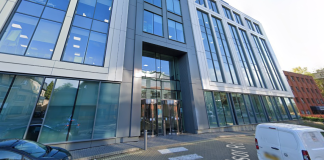An ‘eyewatering’ £382,000 in unpaid business rates has been written off by Slough Borough Council with the agreement of council leaders, with one branding the sum ‘frightening’.
Leading cllrs voted to approve the write off on Monday, 17 March, after all attempts to collect the debt, owed by just three companies, had been ‘exhausted’.

Cllr Wal Chahal, responsible for finance, said: “It’s an eyewatering number to be writing off, it’s just frightening.
“The question really is why have we got to that point – is it because we were slow in collecting, is it because of poor processes, poor procedures?
“What was the actual crux of why the money wasn’t brought in to the coffers of Slough Borough Council and used to pay for services that we desperately need for our residents?”
Andy Jeffs, the council’s director of revenue, said two of the companies that owed the money had dissolved, while the third – which owed the largest amount – had gone into liquidation.
However he pointed out that the council collected almost 99% of business rates owed to it last year.
Mr Jeffs said: “£382,000 does sound like a large amount of money.
“Since the 2010-2011 financial year the council has billed business in Slough over £1 billion in business rates and over that same period has written off £16.2 million of that which is 1.6%.
“Our business rates collection in Slough is very good indeed.”
Of the debts that were written off, the vast majority – £319,021.50 – was owed by one company and covered five years.
The firm, Wooshk, went into administration in 2023.
A report filed by administrators to Companies House suggests it could have owed several councils a total of three and a half million pounds but only had £18,000 in the bank.
The other two debts are owed by are companies that operated out of premises in the town centre and that have since been dissolved.

Cllr Ishrat Shah asked why the companies’ owners couldn’t still be pursued for the money.
She said: “The businesses are dissolved but the people are still there – so money should be recovered just like we recover council tax.”
But council leader Dexter Smith said the longstanding debts were only to be written off after ‘we’ve been through a process of trying to recover them’.
He said that when a company is liquidated, administrators sent to sell its assets decide which debts should be paid first.
Cllr Smith also said that resources could be better used by chasing debts that are more likely to be collected.
He said: “We’ve gone to the end of the process and it seems that we’ve been advised in a timely way now in these instances there’s nothing more we can do.
“It’s better to draw a line under that and focus on chasing others who owe us money and get that in, and keep up this very high collection rate.”




